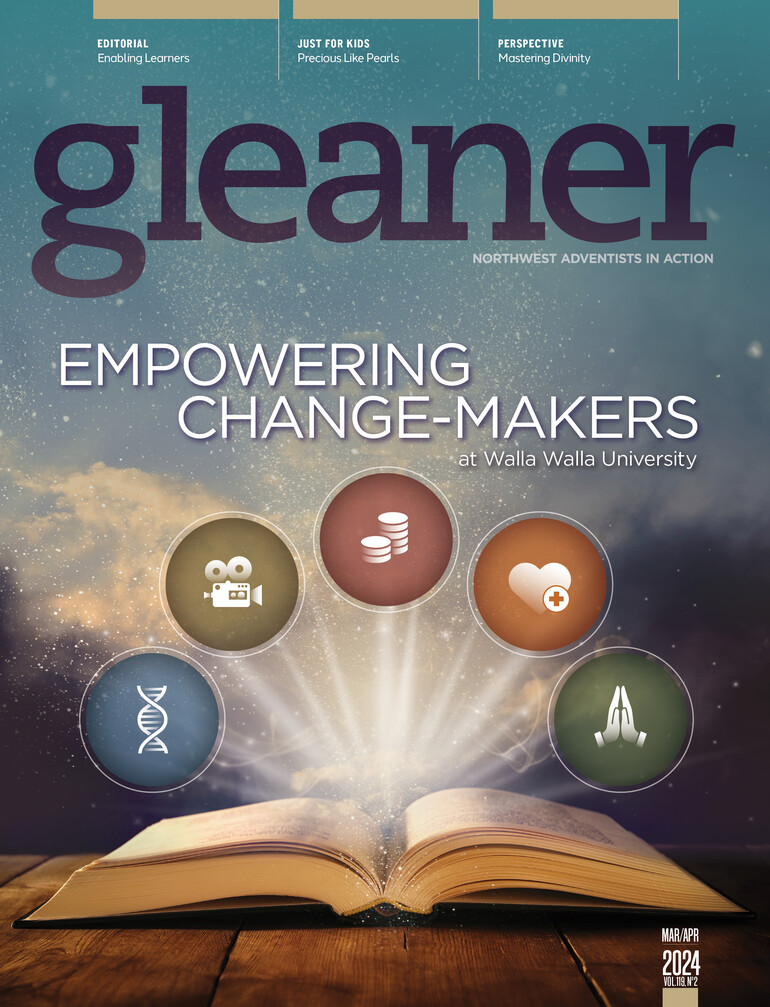"Take My yoke upon you. Let Me teach you, because I am humble and gentle at heart, and you will find rest for your souls" (Matt. 11:29).
When a pastor graduates from school, they receive a Master of Divinity degree.
Recently I was reflecting on how arrogant that sounds. Sure, you may have a master’s in accounting, arts or science, but have you mastered the study of God?
This is especially startling when I think back on all my opinions about religion and God that are different now than a decade ago while I was getting my degree. The only thing I know now for sure is I still have a lot to learn.
Are we confident enough to admit we don't have all the answers? Have you ever changed your mind about a political or religious belief?
As you take a minute to reflect on that, I will share a belief that changed for me while I was getting my master's.
Before attending seminary, I read books and listened to hours of presentations about the danger of something called the emergent church and spiritual formation.
I was convinced these things were deadly and divisive. I even signed a statement against the teaching of spiritual formation at Andrews University and talked to a conference president about my concerns. When I got to Andrews, I was highly skeptical of a class called Biblical Formation.
I had read an article in the Adventist Review explaining how the class changed its name from Spiritual Formation to Biblical Formation[1] and thought the name change was a conspiracy to trick more people into being sucked into the dangerous deception.
I was on high alert and my antenna was tuned for any spiritualism the teachers were trying to “sneak through.”
However, in my Biblical Formation class, I learned that what was being taught was literally how to have a devotional life.
We read the Bible, Desire of Ages and we were encouraged to pray and record our devotional time in a prayer journal. My teacher was loving, patient and kind. He answered all my questions and even invited my wife and me over to his home for Thanksgiving.
The combination of kindness and thoughtful answers helped change my mind. I began to see that all the books and hours of presentations I consumed attacking spiritual formation contained mostly slanderous information. I was misinformed, but my teachers at Andrews University didn't shame me for the way I thought — they were patient with me.
The journey continues. I realize I have many opinions about the world and religion that may still be wrong. I am convinced the path forward is pursuing answers with curiosity, honesty and intellectual humility.
Irrational faith is not a virtue. Pretending that we have it all figured out and that we have nothing to learn ultimately does damage to genuine faith.
A couple of years ago I listened to a conference by the Barna group that talked about the difference between intellectual humility and general humility. General humility is how you see yourself. Intellectual humility is how you see your knowledge.
Intellectual humility relates to everyone. It means you have an accurate perception of your strengths and weaknesses. This kind of humility has four practical behaviors.
1. When you are humble about your knowledge, you will not be overconfident.
2. You won’t become defensive when people have different perspectives than you.
3. You will be open to revision when necessary.
4. You will respect the viewpoint of others.
A Litmus test for Christians is how we relate to those who disagree with us. Throughout church history, millions of martyrs have been burned at the stake because of their “heretical” beliefs.
I find it telling that in all of church history no one has been punished as a heretic for being unloving. But Jesus put the litmus test this way, “By this everyone will know that you are My disciples, if you love one another” (John 13:35).
According to this test, some atheists end up looking more “Christian” than Christians. We should reflect on this, and it should lead to a humility that confronts the arrogance so prevalent in parts of Christianity today. I believe the closer we become to “mastering divinity” the humbler and more loving we will become.
[1] Knott, Bill. “Formed in Christ.” Adventist Review, August 10, 2011. https://adventistreview.org/2011-1522/2011-1522-18/.










